Lets work together



Suite 3A, Chapel Allerton House, 114 Harrogate Road, Leeds, LS7 4NY
ukinfo@integrated-skills.com
+44 (0) 3300 888 670
Case Studies
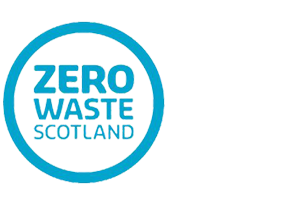
From July 2022 Scotland will be the first part of the UK to introduce a Deposit Return Scheme for drinks containers. The scheme will target the recycling of used bottles and cans, including all drinks sold in PET plastic, metal and glass. The scheme will work by adding a 20p deposit to single-use containers, which is refunded when the empty container is returned, and aims to improve recycling of containers to achieve a 90% capture rate – that is almost 2 billion containers being recycled every year.
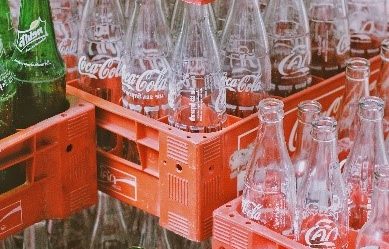
As experts in both the fields of solid wastes management and high-density route optimisation Integrated Skills Limited was appointed by Zero Waste Scotland to undertake a route and infrastructure network mapping project. The primary aim of the project: to calculate the optimum number of bulking points and counting centres to minimise the cost of the DRS logistics.
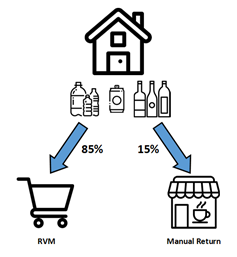
A Geographical Information Systems approach was adopted utilising world-leading software packages for mapping, network analysis and route optimisation. Combined with detailed information provided by Zero Waste Scotland, cost models were generated to compare scenarios and ultimately identify the optimum solution.
The One Scotland Gazetteer (OSG), Scotland’s national land, property and address dataset was utilised to model container distribution at the individual household level (>2.7 million). Zero Waste Scotland provided expected volumes of returns to reverse vending machines (RVMs) and manual return points, based on its research into similar schemes in Europe, and these were also applied.
The detailed analysis, utilising ArcGIS Network Analyst, identified the most cost-effective solution considering the full container journey from household or place of consumption (café, restaurant etc.) to return point to bulking location and the final journey to a counting centre or reprocessing facility.
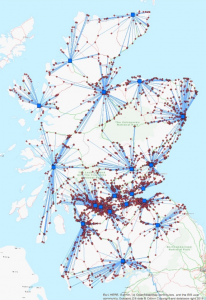
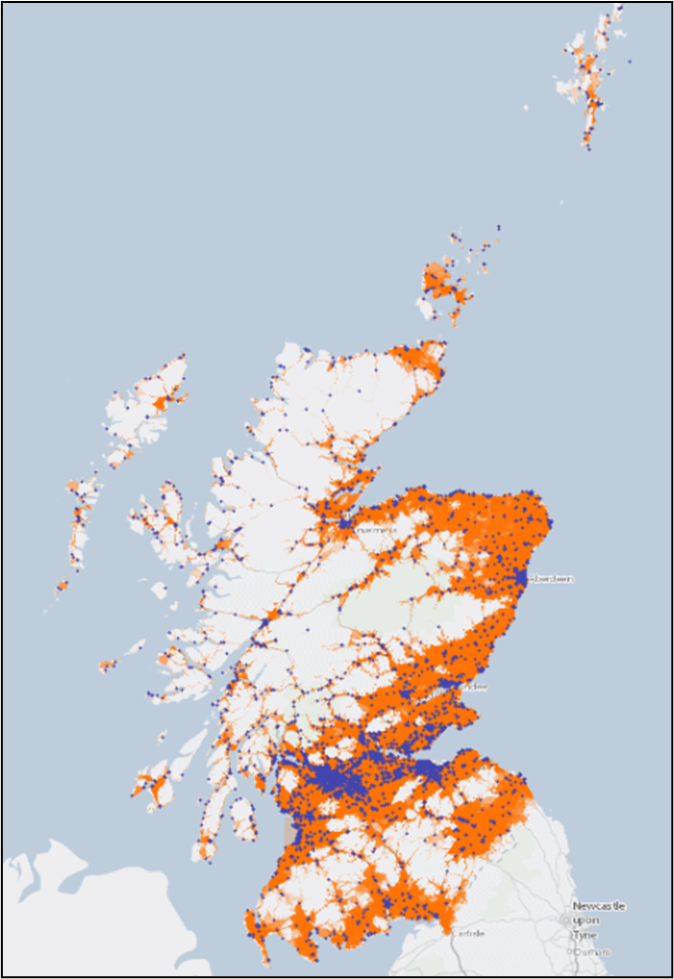
Service areas for all manual return locations
Routing the logistics on Scotland’s many islands was a challenging element of the operation particularly identifying the optimum approach to share vehicles across multiple islands and to incorporate the cost of ferry crossings. Over 55,000 households are in island locations and are only accessible by ferry. Every island return location was routed to the departing ferry port on the relevant island and the onward haulage of the containers from the mainland ferry port included in the modelling of operation on the mainland.
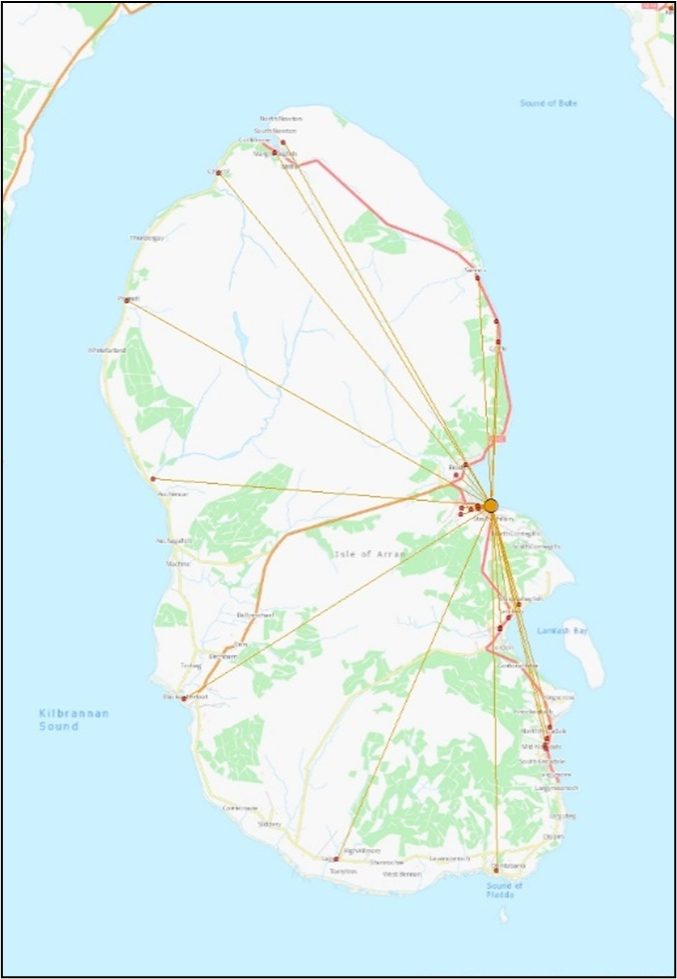
Return Locations on Arran Island with containers to be transported via the island ferry port
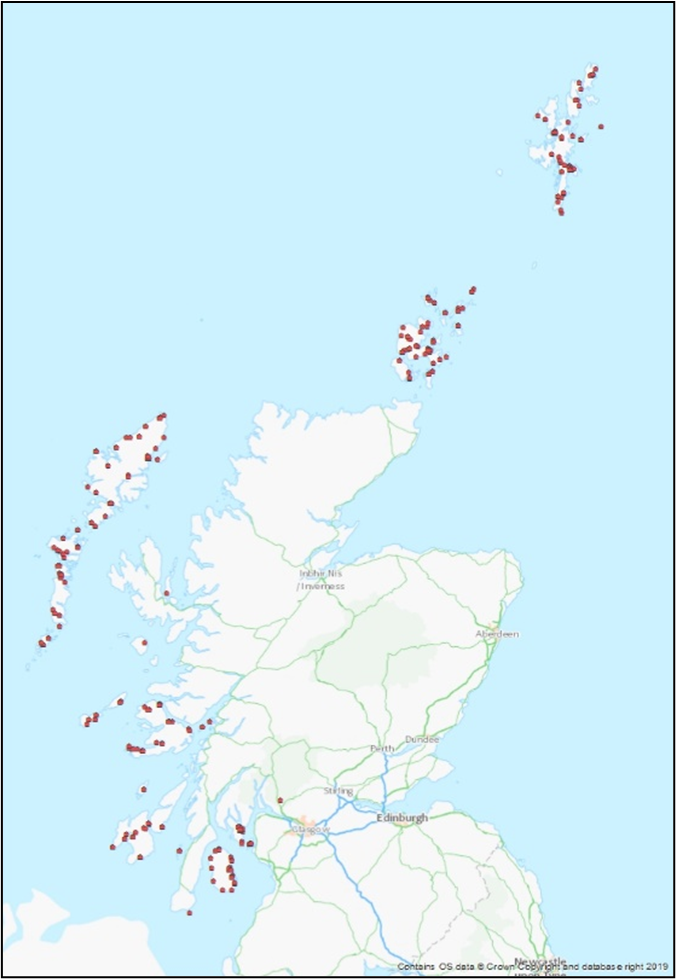
Island Return Locations
The detailed analysis of models undertaken by ISL provided Zero Waste Scotland with a range of options to approach the logistics challenge and a comprehensive fact-file crucial to the decision-making process to ensure the operation can be delivered cost effectively.
Following the first exercise Zero Waste Scotland contracted ISL to undertake some further options modelling, including an examination of the impact of using backhaul (dependant on a joint working approach with large operators, particularly in the food retail sector) and transporting broken, rather than whole, glass bottles.
The models are now being further refined by ISL as the scheme looks set to appoint an administrator and move into the next crucial delivery phase of this ambitious project.
Would you like to know more about this Case Study? Fill in your details below and let us know how we can help.
Website Designed & Built by we are CODA